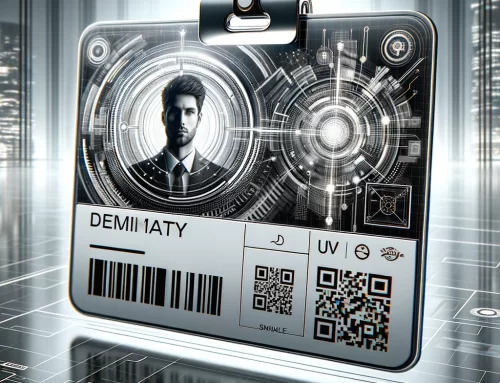
All cards are designed for free, shipped same-day, and ordered online.
In the rapidly growing marijuana industry, the implementation of effective security measures is crucial for ensuring compliance, promoting safety, and building trust. One such measure is the use of photo ID badges for employees. In this blog post, we will explore the importance of photo ID badges in marijuana shops, growers, and manufacturers, along with the specific requirements associated with their usage.
- Enhancing Security and Compliance: Photo ID badges play a vital role in enhancing security within the marijuana industry. They help identify authorized personnel and distinguish them from visitors or unauthorized individuals. By prominently displaying the employee’s photo, name, and job title, ID badges provide visual verification, allowing for quick identification of employees and reducing the risk of unauthorized access.
Furthermore, ID badges contribute to compliance with state and local regulations. Many jurisdictions mandate the use of ID badges as part of their licensing requirements for marijuana establishments. By adhering to these requirements, businesses demonstrate their commitment to operating legally and responsibly.
- Age Verification and Restricting Access: One of the primary reasons for implementing ID badges in marijuana establishments is to ensure strict age verification and restrict access to minors. With clear identification and age indicators on ID badges, employees can easily verify the age of customers before allowing entry or making sales. This not only helps businesses comply with legal age restrictions but also protects young individuals from accessing marijuana products.
- Internal Communication and Safety: Photo ID badges foster effective internal communication and enhance workplace safety. By displaying an employee’s name and job title, ID badges facilitate easy identification among staff members, leading to better communication and collaboration within the workplace.
In emergency situations, ID badges can be instrumental in ensuring the safety of employees. During evacuations or other incidents, it becomes easier for emergency responders to identify employees and account for their well-being.
- Requirements for ID Badge Implementation: To implement photo ID badges effectively, marijuana establishments must comply with certain requirements. These may vary depending on local regulations, but common elements include:
a. Employee Information: Each ID badge should include the employee’s full name and a clear, recent photograph for easy identification.
b. Job Title and Department: Display the employee’s job title or role within the establishment. This helps distinguish between different positions and responsibilities.

different templates for employees and patients
c. Expiration Date: To maintain up-to-date records, marijuana ID badges should include an expiration date, indicating when the badge needs renewal.
d. Security Features: Incorporate security features such as holograms, barcodes, or magnetic stripes to prevent counterfeiting and unauthorized duplication.
e. Lanyards or Badge Holders: Provide employees with lanyards or badge holders to securely display their ID badges while on the premises.
Conclusion: In the marijuana industry, the implementation of photo ID badges for employees in shops, growers, and manufacturers is of paramount importance. These badges enhance security, aid in age verification, promote compliance, facilitate internal communication, and contribute to workplace safety. By adhering to the requirements associated with ID badge implementation, businesses can demonstrate their commitment to responsible operations while fostering a secure and trusted environment within the industry.
This way, you can practice the best in secure, responsible medical marijuana identification without the hassle of in-house design and printing. If you have any questions regarding ID badges for MMJ, please feel free to contact us. We will make sure that your identification program strictly adheres to the laws in your specific state.



